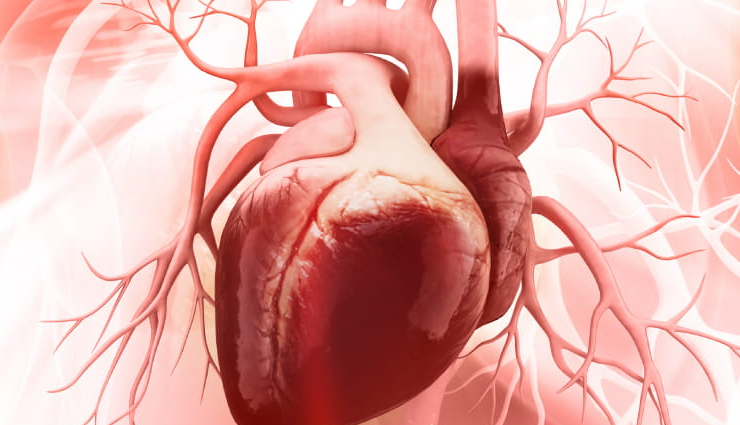- Home›
- Healthy Living›
- Mango Mania: 10 Amazing Health Benefits Of This Juicy Summer Fruit!
Mango Mania: 10 Amazing Health Benefits Of This Juicy Summer Fruit!
By: Priyanka Maheshwari Thu, 04 May 2023 1:19:03

Summer is a season of warmth and sunshine, and there are few things that capture its essence better than a ripe, juicy mango. Mangoes are one of the most beloved fruits in the world, and for good reason. Not only are they delicious, but they also offer a range of health benefits. In this article, we will explore 10 health benefits of mango in the summer season:

Boosts Immunity
Mangoes have numerous health benefits, including boosting the immune system. Here are some ways in which mangoes can help to improve your immunity:
High in Vitamin C: Mangoes are an excellent source of vitamin C, which is a powerful antioxidant that helps to protect the body against harmful free radicals. Vitamin C also stimulates the production of white blood cells, which are essential for fighting off infections and diseases.
Rich in beta-carotene: Mangoes are also rich in beta-carotene, which is converted into vitamin A in the body. Vitamin A is crucial for maintaining a healthy immune system, as it helps to produce and maintain the mucous membranes that line the respiratory and digestive tracts, which are the first line of defense against invading pathogens.
Contains other nutrients: Mangoes also contain other nutrients like folate, vitamin E, and potassium, which all play a role in maintaining a healthy immune system.
Helps to reduce inflammation: Chronic inflammation can weaken the immune system, making it more susceptible to infections and diseases. Mangoes contain anti-inflammatory compounds like quercetin, kaempferol, and gallic acid, which can help to reduce inflammation in the body.
Supports gut health: The gut is home to trillions of beneficial bacteria that play a critical role in maintaining a healthy immune system. Mangoes contain dietary fiber and polyphenols, which can help to nourish the gut microbiome and promote the growth of beneficial bacteria.

Improves Digestion
Mangoes are not only delicious but also very nutritious, and they have been known to improve digestion in several ways. Here are some ways in which mangoes can help to improve your digestive health:
Rich in dietary fiber: Mangoes are rich in dietary fiber, which is essential for maintaining healthy digestion. Fiber helps to prevent constipation, promote regular bowel movements, and keep the digestive tract healthy.
Contains digestive enzymes: Mangoes contain digestive enzymes like amylases, proteases, and lipases, which help to break down food in the digestive tract, making it easier to digest and absorb nutrients.
Promotes gut health: Mangoes contain polyphenols and prebiotic dietary fibers that can help to nourish the gut microbiome, which is crucial for maintaining healthy digestion. The gut microbiome plays a critical role in breaking down food, absorbing nutrients, and preventing harmful bacteria from growing in the gut.
Helps to prevent acid reflux: Mangoes are known to have alkaline properties, which can help to reduce the symptoms of acid reflux and heartburn. They can also help to soothe the lining of the stomach and reduce inflammation in the digestive tract.
Supports liver function: Mangoes contain antioxidants like quercetin, isoquercitrin, astragalin, and gallic acid, which can help to protect the liver from damage and support its function. The liver is responsible for producing bile, which helps to break down fats in the digestive tract.

Promotes Heart Health
Mangoes also help to promote heart health. Here are some ways in which mangoes can benefit your heart:
Rich in nutrients: Mangoes are rich in nutrients like vitamins A and C, potassium, and fiber, which are essential for maintaining heart health. These nutrients can help to lower cholesterol levels, reduce blood pressure, and prevent heart disease.
Contains antioxidants: Mangoes contain antioxidants like quercetin, beta-carotene, and polyphenols, which can help to protect the heart from damage caused by free radicals. Free radicals are unstable molecules that can cause inflammation and damage to cells in the body, including those in the heart.
Lowers cholesterol levels: Mangoes contain soluble fiber, which can help to lower cholesterol levels in the blood. High cholesterol levels can increase the risk of heart disease, so consuming foods that can lower cholesterol levels like mangoes can be beneficial for heart health.
Reduces inflammation: Chronic inflammation is a risk factor for heart disease, and mangoes can help to reduce inflammation in the body due to their anti-inflammatory properties. This can help to lower the risk of heart disease and other chronic health conditions.
Improves blood sugar control: High blood sugar levels can increase the risk of heart disease, and consuming mangoes can help to improve blood sugar control due to their low glycemic index and high fiber content.

Helps in Weight Loss
Mangoes can be a great addition to a weight loss diet. Here are some ways that mangoes can help with weight loss:
Low in calories: One medium-sized mango contains approximately 100 calories, making it a low-calorie snack option.
High in fiber: Mangoes are a good source of dietary fiber, which can help you feel full and satisfied after eating. This can help prevent overeating and snacking on unhealthy foods.
Contains natural sugars: Mangoes contain natural sugars that can help satisfy your sweet cravings without consuming processed sugars.
Boosts metabolism: Mangoes contain vitamins and minerals that can help boost your metabolism, allowing you to burn more calories throughout the day.
Provides energy: Mangoes are rich in carbohydrates, which can provide you with energy to stay active throughout the day. This can help you burn more calories and lose weight.

Promotes Eye Health
Mangoes are a great source of nutrients that can promote eye health. Here are some of the ways mangoes promote eye health:
Rich in Vitamin A: Mangoes are rich in beta-carotene, which is converted to vitamin A in the body. Vitamin A is an essential nutrient that helps protect the eyes from damage, improves night vision, and maintains healthy vision.
Contains Antioxidants: Mangoes are rich in antioxidants such as zeaxanthin and lutein, which help protect the eyes from damage caused by free radicals. These antioxidants also help reduce the risk of age-related macular degeneration (AMD), a common eye condition that can lead to vision loss.
Supports Collagen Production: Mangoes contain vitamin C, which is essential for the production of collagen, a protein that provides structure to the eye's cornea. Collagen plays an important role in maintaining the eye's health and preventing conditions such as cataracts.
Reduces Inflammation: Mangoes contain anti-inflammatory compounds that can help reduce inflammation in the eyes. Chronic inflammation can lead to eye diseases such as uveitis, so consuming mangoes can be helpful in preventing these conditions.

Prevents Cancer
Mangoes contain a variety of nutrients and compounds that have been shown to have anti-cancer properties. Here are some of the ways that mangoes may help prevent cancer:
Antioxidant activity: Mangoes are rich in antioxidants such as quercetin, gallic acid, and other polyphenols that help protect cells from damage caused by free radicals. This damage can lead to DNA mutations that may contribute to the development of cancer.
Anti-inflammatory activity: Mangoes contain anti-inflammatory compounds such as mangiferin, which have been shown to have anti-cancer properties. Chronic inflammation has been linked to the development of many types of cancer, so reducing inflammation can be an effective way to prevent cancer.
Immune system support: Mangoes contain nutrients such as vitamin C and beta-carotene that help support the immune system. A healthy immune system is important in preventing the growth and spread of cancer cells.
Apoptosis induction: Mangoes contain compounds that may induce apoptosis, which is the programmed cell death of damaged or abnormal cells. This process is important in preventing the growth and spread of cancer cells.
Carotenoids: Mangoes contain carotenoids such as beta-carotene, lycopene, and alpha-carotene, which have been shown to have anti-cancer properties. These compounds may help prevent the growth and spread of cancer cells.

Reduces Inflammation
Consuming mangoes can be an effective way to reduce inflammation in the body. Here are some of the ways that mangoes may help reduce inflammation:
Polyphenols: Mangoes are rich in polyphenols, which are plant compounds that have antioxidant and anti-inflammatory properties. These compounds can help reduce inflammation by neutralizing free radicals, which are molecules that can damage cells and contribute to inflammation.
Vitamin C: Mangoes are an excellent source of vitamin C, which is a powerful antioxidant that can help reduce inflammation. Vitamin C helps protect cells from oxidative stress, which can trigger inflammation.
Carotenoids: Mangoes contain carotenoids such as beta-carotene and lutein, which have been shown to have anti-inflammatory properties. These compounds can help reduce inflammation by neutralizing free radicals and reducing oxidative stress.
Fiber: Mangoes are a good source of dietary fiber, which can help reduce inflammation by promoting the growth of beneficial gut bacteria. These bacteria can help reduce inflammation in the gut, which can have a positive effect on the rest of the body.
Enzymes: Mangoes contain enzymes such as papain and bromelain, which have anti-inflammatory properties. These enzymes can help reduce inflammation by breaking down proteins that contribute to inflammation.

Improves Skin Health
Consuming mangoes can be an effective way to improve skin health. Here are some of the ways that mangoes may improve skin health:
Antioxidant activity: Mangoes are rich in antioxidants such as vitamins A and C, which can help protect the skin from damage caused by free radicals. This damage can contribute to premature aging, wrinkles, and other skin issues.
Collagen production: Mangoes contain vitamin C, which is essential for the production of collagen, a protein that provides structure to the skin. Collagen plays an important role in maintaining skin elasticity and preventing wrinkles.
Hydration: Mangoes are rich in water content and can help keep the skin hydrated, which is important for maintaining skin health. Dehydration can lead to dry skin, wrinkles, and other skin issues.
Vitamin A: Mangoes are a good source of beta-carotene, which is converted to vitamin A in the body. Vitamin A helps regulate skin cell growth and turnover, which is important for maintaining healthy skin.
Exfoliation: Mangoes contain enzymes such as alpha hydroxy acids (AHAs) that can help exfoliate the skin. AHAs help remove dead skin cells and promote the growth of new skin cells, which can improve skin texture and reduce the appearance of fine lines and wrinkles.

Boosts Brain Function
Consuming mangoes can be an effective way to boost brain function. However, it's important to remember that mangoes should be consumed as part of a balanced diet, and excessive consumption should be avoided. Here are some of the ways that mangoes may boost brain function:
Antioxidant activity: Mangoes are rich in antioxidants such as vitamin C and polyphenols, which can help protect the brain from oxidative stress. This stress can contribute to cognitive decline and other brain issues.
Vitamin B6: Mangoes are a good source of vitamin B6, which is essential for brain function. Vitamin B6 helps produce neurotransmitters such as serotonin, dopamine, and norepinephrine, which play important roles in mood, memory, and cognitive function.
Glutamine: Mangoes contain glutamine, an amino acid that is important for brain function. Glutamine helps produce GABA, a neurotransmitter that has a calming effect on the brain.
Fiber: Mangoes are a good source of dietary fiber, which can help improve gut health. The gut-brain axis is a complex system that connects the gut and the brain, and improving gut health can have a positive effect on brain function.
Flavonoids: Mangoes contain flavonoids such as quercetin, which have been shown to have neuroprotective effects. These compounds can help protect the brain from damage and improve cognitive function.

Provides Energy
Mangoes are a good source of carbohydrates, which are the primary source of energy for the body. Here are some of the ways that mangoes may provide energy:
Carbohydrates: Mangoes are a good source of carbohydrates, which provide energy to the body. Carbohydrates are broken down into glucose, which is used by the body for energy.
Fiber: Mangoes are a good source of dietary fiber, which can help regulate blood sugar levels. This can prevent spikes and crashes in blood sugar levels, which can lead to fatigue and low energy levels.
Vitamins: Mangoes are a good source of several vitamins, including vitamins A, C, and E. These vitamins are important for energy production and can help reduce fatigue.
Electrolytes: Mangoes are a good source of potassium, which is an electrolyte that helps regulate fluid balance in the body. Electrolytes are important for maintaining energy levels and preventing dehydration.
Antioxidants: Mangoes are rich in antioxidants, which can help protect the body from damage caused by free radicals. This damage can contribute to fatigue and low energy levels.





